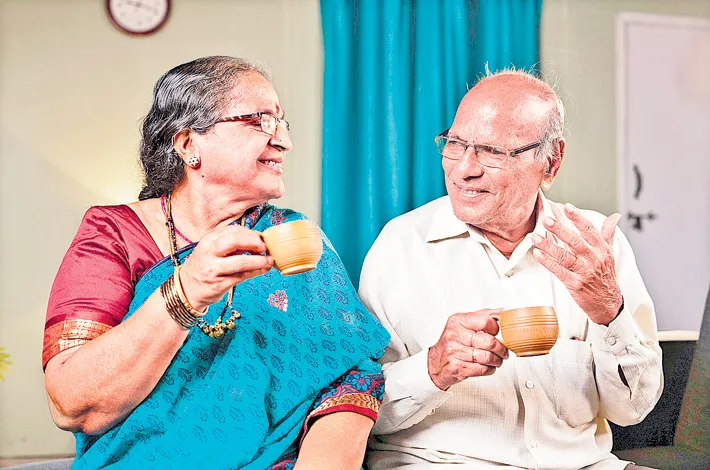Too Old for What, Challenging the quiet stereotype
09-10-2025 12:00:00 AM

This is internalized ageism, and it doesn’t arrive like a storm. It drips in quietly, one stereotype at a time, until we start believing it ourselves
It often starts subtly. A gentle suggestion: “Why don’t you just rest now?” A nod of respect laced with finality: “You’ve done enough.” People begin to speak a little slower around you, caution you to walk carefully, and kindly offer to hold your hand—on perfectly even ground. It's sweet, yes, but also a little unnerving—like you've quietly been reclassified as fragile. Add to that the birthday cards with jokes about memory loss and WhatsApp forwards celebrating “golden years” with temple tours, and a new narrative begins to set in: that growing older means growing smaller—quieter, more spiritual, less visible.
This is internalized ageism, and it doesn’t arrive like a storm. It drips in quietly, one stereotype at a time, until we start believing it ourselves. We begin to second-guess our curiosity, our ambitions, even our opinions—especially around younger company. Not because we’ve lost our spark, but because somewhere along the way, we were told it’s no longer ours to show.
What’s fascinating is how this narrative changes with location.
Mumbai, for instance—a city where age seems to be more of a footnote than a defining feature. In local trains, cafés, and cultural events, you’ll find people in their 60s, 70s, and beyond, passionately arguing about art, cinema, politics, or climate change. The pace of the city is such that everyone, regardless of age, is part of the collective hustle. Whether you’re launching a startup or learning classical guitar, it rarely surprises anyone.
In Hyderabad, the pace is gentler—and so is the social script around aging. There’s deep respect for elders, no doubt, but it sometimes comes with a subtle expectation of withdrawal. Conversations at social gatherings often veer toward health, rituals, and family traditions. Many seniors here embrace a beautifully rooted, reflective life centered on spiritual growth and family. That, too, is valid and meaningful.
But the key is choice. The challenge arises when certain roles are expected of us just because of our age. When curiosity is seen as “unusual,” or ambition mistaken for restlessness. When we stop seeing aging as a continuation—and start treating it as a conclusion.
The truth is, aging doesn't flatten personality—it deepens it. And there’s no expiry date on learning, laughing, questioning, or contributing meaningfully to public life. Grandchildren can be a joy. So can podcasts, political debates, solo travel, or experimental cooking. One doesn’t cancel the other out.
Internalized ageism asks us to shrink. But we can push back—gently, humorously, and with all the wisdom years have gifted us. So the next time someone says, “At your age?”, feel free to smile and say, “Yes—at my age, I choose to do what i want!
Dr A L Sharada Trustee, Population First She can be reached at alsharada518@gmail.com








